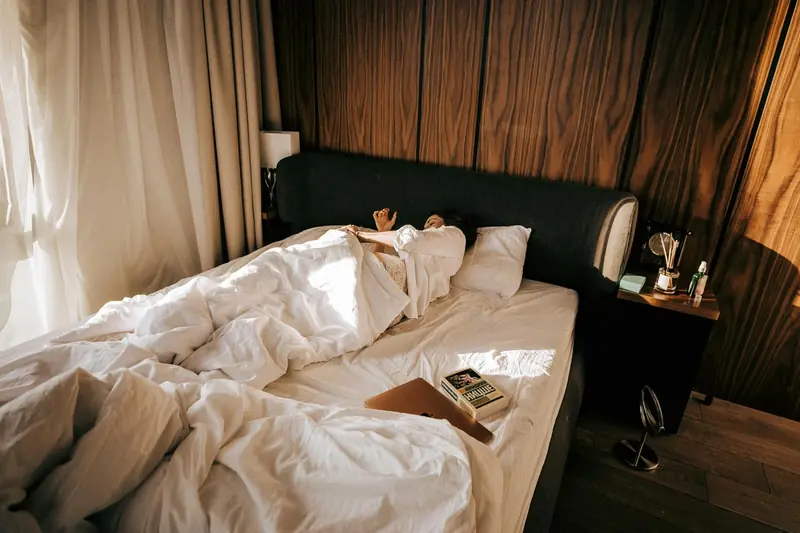
The team at Osaka Municipal University has discovered a way to combat that groggy feeling many of us experience in the morning. According to the researchers, just 20 minutes of exposure to sunlight before waking up can keep you energized throughout the day.
They emphasized that most people feel morning fatigue even after a full night’s sleep. This condition can be tackled with physical exercise, as well as by limiting food and alcohol intake before bedtime.
However, as the university team assured, a truly effective trick for shaking off sleepiness is a brief exposure to natural light right before waking up.
Waking Up to Natural Light is Better Than Artificial
Previous studies have shown that exposure to artificial light that mimics a natural sunrise can also reduce morning fatigue. However, this method is not perfect.
“Dawn is typically simulated by small light sources placed on a bedside table, which are quite low, usually at eye level,” the researchers noted in their report. Moreover, the beams from these sources are distinctly directed. There may be ways to avoid these issues, such as diffusing the light by mounting a dawn simulator on the ceiling. But why go through that trouble when, in most populated areas of our planet, dawn occurs naturally, providing a free service to help us wake up refreshed?
For those living in places without light pollution, leaving curtains or blinds open at night allows them to blissfully enjoy the darkness until dawn. However, not everyone has this option due to the widespread use of street lighting, as reported by Science Alert. Some tackle this issue with devices like motorized curtains that block light at night and open at a set time each morning.
How Was the Study Conducted?
The researchers involved 19 university students aged between 20 and 30 in their study. Participants reported that they typically go to bed on weekdays between 11 PM and 1 AM, waking up between 7 AM and 9 AM.
The volunteers slept in a university laboratory set up like a bedroom. All windows were covered except for one facing east, which served as the sole source of natural light in the room.
On this window, the researchers installed light-blocking curtains and a motorized device that slowly opened them each morning at a designated time.
This setup allowed the team to conduct experiments under three scenarios. The first involved sunlight entering the bedroom 20 minutes before waking up, the second allowed for natural light from dawn until waking, and the third maintained complete darkness until waking.
After participants woke up in each of these simulated situations, the researchers assessed their sleepiness, alertness, and fatigue levels.
Objective alertness (measured using an electrocardiogram) and self-reported sleepiness were significantly better in the two scenarios with natural light compared to the absence of it.
However, the timing and dosage of natural light proved to be the most critical factors in the experiment. Objective sleepiness, measured with an electroencephalogram, was significantly lower after 20 minutes of natural light exposure before waking compared to the other scenarios.
The scientists suggested that too much sunlight from dawn until waking could actually impair sleep quality.
According to Daisuke Matsushita, the lead author of the study, future research based on these findings will allow for a deeper exploration of the most effective ways to combat sleepiness using sunlight.
The study results were published in the journal Building and Environment.
